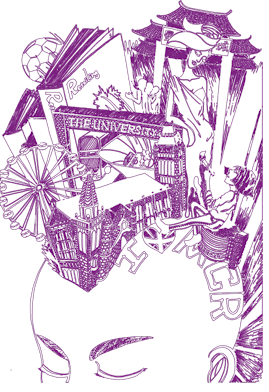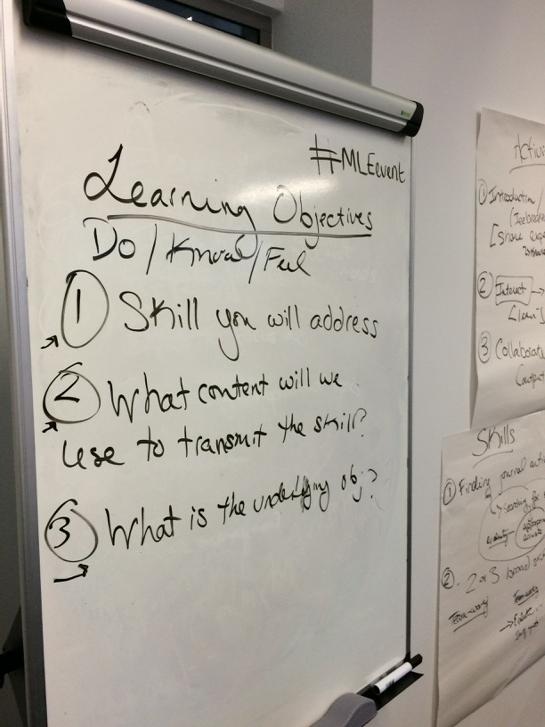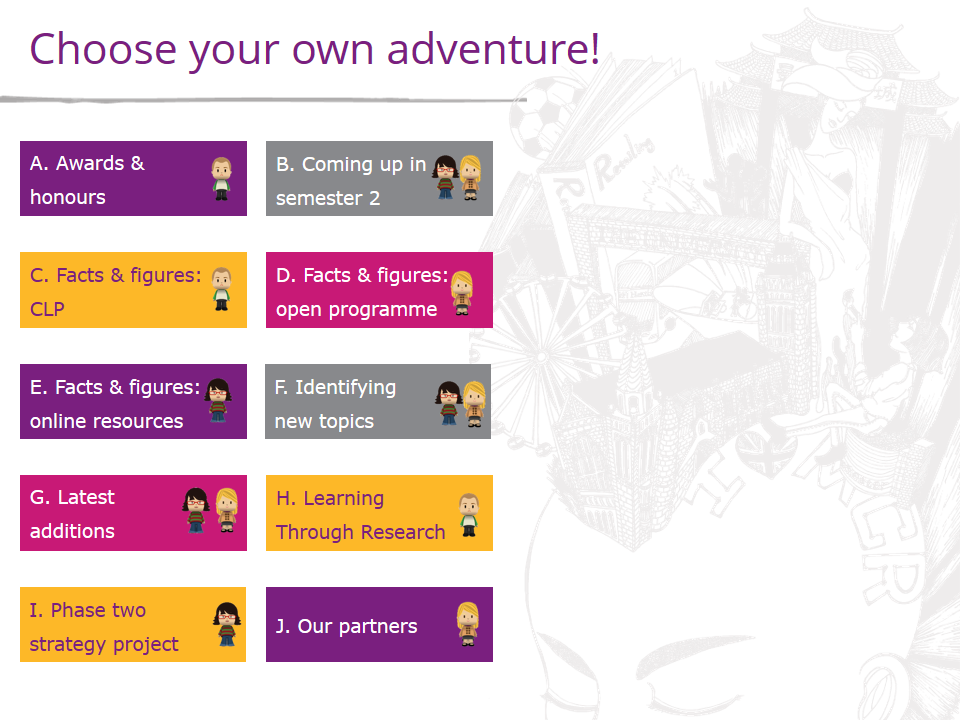Workshop: Developing a Blended Learning Skills Programme
Venue: Alan Gilbert Learning Commons, University of Manchester
Date: Monday 15th December, 2014
This event was run by Jennie Blake and Jade Kelsall from the University of Manchester Library, home of the award-winning My Learning Essentials programme.
View the Storify from the day.
We started with an overview of how the My Learning Essentials programme works, focusing on how the online and face-to-face elements work together.

At its core, My Learning Essentials is a self-selecting blended learning skills support programme. Our online and face-to-face elements work in tandem to deliver support to students at the point of need. Whether they are working on a literature review at two in the morning or planning ahead for a presentation or exam, the students can access the support they need at the time they need it. In order to deliver this programme to the more than 40,000 students attending The University of Manchester, the flexible and clear process and structure is paramount. Everything run on the programme is closely assessed for impact on our participants in order to inform its future direction. These quality assurance, monitoring and development processes ensure that we are providing our students with the right thing at the right time.
Underlying all of the materials is a process where the student voice is given centre stage. All resources are prompted by demonstrated student demand, most often by direct student request, and the focus is not on delivering what we might think students need, or even what they wished they would have had, but what they tell us they need now—for their success and progression in the moment. After the need has been identified, the learning objectives and student outputs are tested and iterated within the workshops of the open training programme, allowing us to further refine our understanding of what students need and what resources will address those needs. It also allows us to clearly deliver collaborative and creative experiences in our workshops that are supported by the online resources—freeing up valuable time in the face-to-face sessions for student exploration and interaction because information transfer can happen elsewhere.
The strong link between online and face-to-face support is, in the end, what makes the delivery of such a broad programme to such a large student body possible. Because the learning objectives for the most popular face to face sessions can be fine-tuned and then supported online, we are able to consistently deliver what students need without overstretching the resource available and while still recognising the clear differences in purpose and approach inherent in each.
We discussed the transferability of this model; the underlying processes are the major contributing factor to the success of the programme, and these can be implemented at any scale, large or small.

We then moved on to explore in more detail the processes and techniques we use to create our workshops and online resources, beginning with learning objectives which are at the core of both. Our participants began to identify learning objectives which they then used as a basis for the rest of the day’s activities. We discussed how important it was to keep returning to these learning objectives throughout the rest of the creation process, be it face-to-face or online, to ensure that the learning experience you are creating remains targeted on what you want your students to get out of it.
Most of the rest of the afternoon was spent examining the development processes for workshops and online resources. Our participants started designing their own workshop activities, focusing on making sure that they are as collaborative as possible to ensure that they are making the most of the limited time we have with our students.
Next up was online resource development; we explored the process used for the My Learning Essentials programme, and started to come up with ideas for different approaches to meet our learning objectives. These were then built into a structured skeleton plan for an online resource, and we discussed ideas for activities that would be suitable for online delivery.

After making our participants work so hard all afternoon, we ended with a quick round-up of some of the newer initiatives from My Learning Essentials. Participants were asked to vote for the areas they wanted to hear more about from a number of options, which prompted further interesting discussions.
We will be running this session again in London next February.

Just revisiting a brilliant day, with some great ideas, at a round table of our teaching at SHU. Thanks for bringing it all together in one place: has made sharing with colleagues much easier and also reminded me about a few things my notes were a bit hazy on!